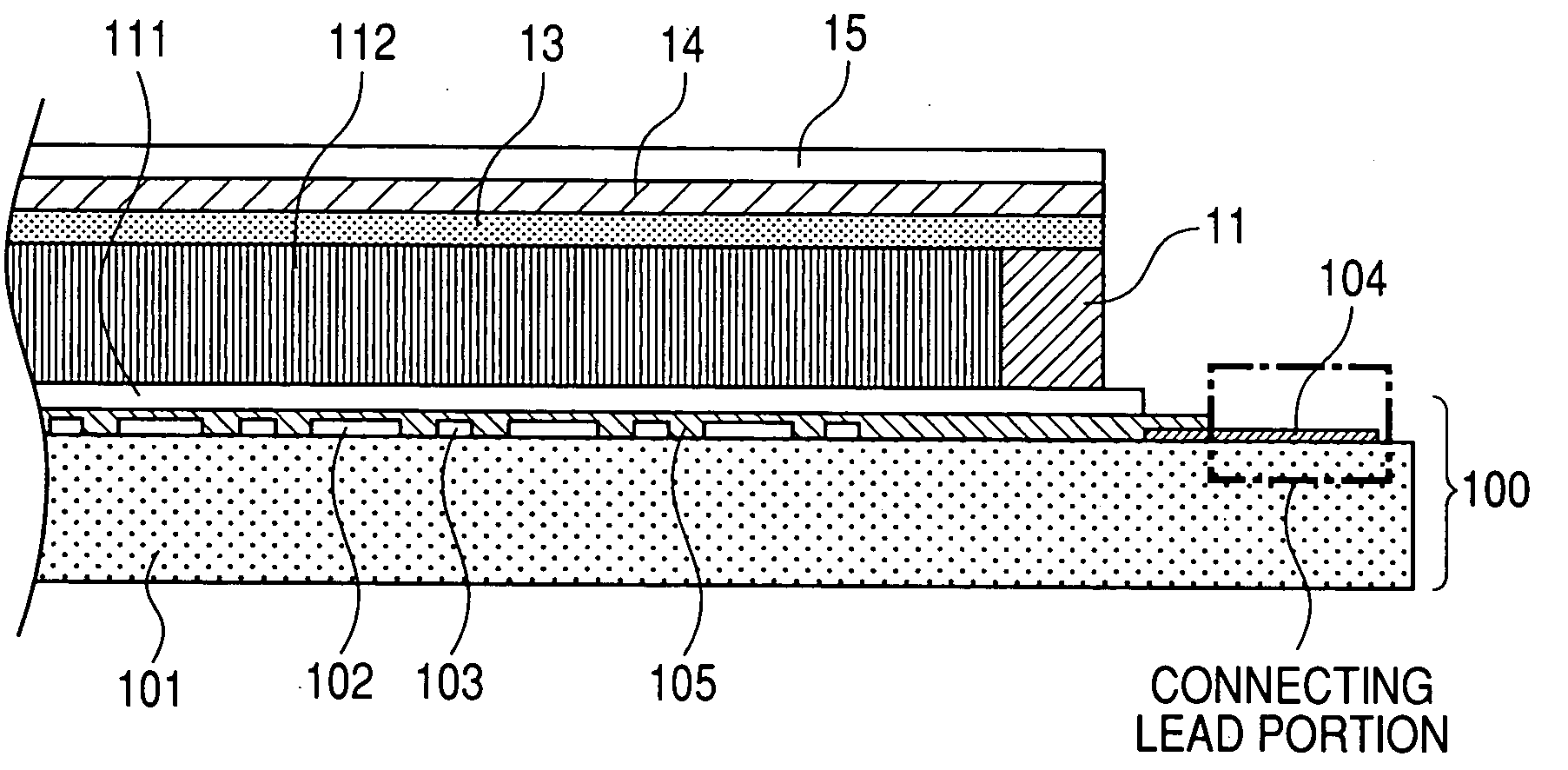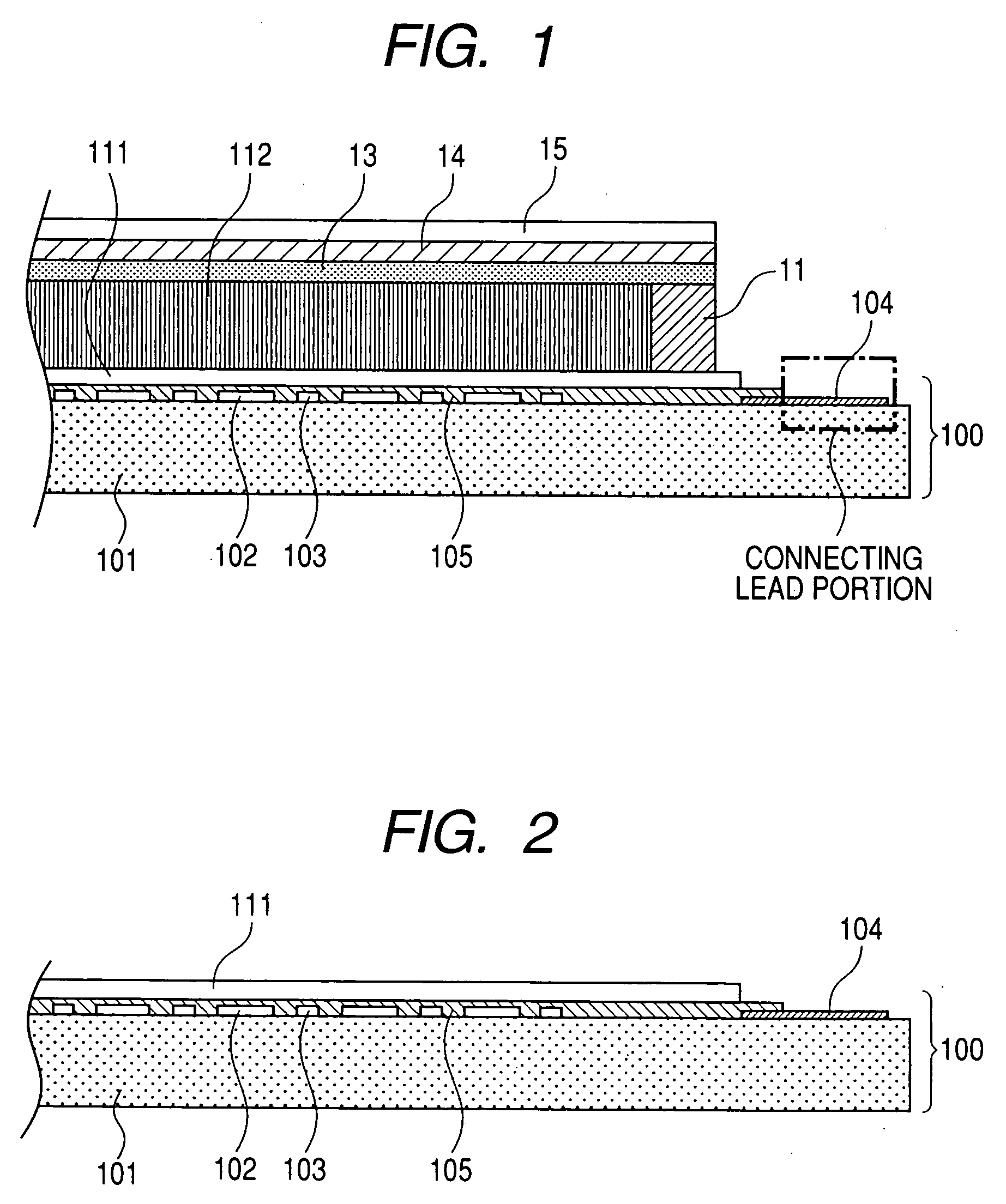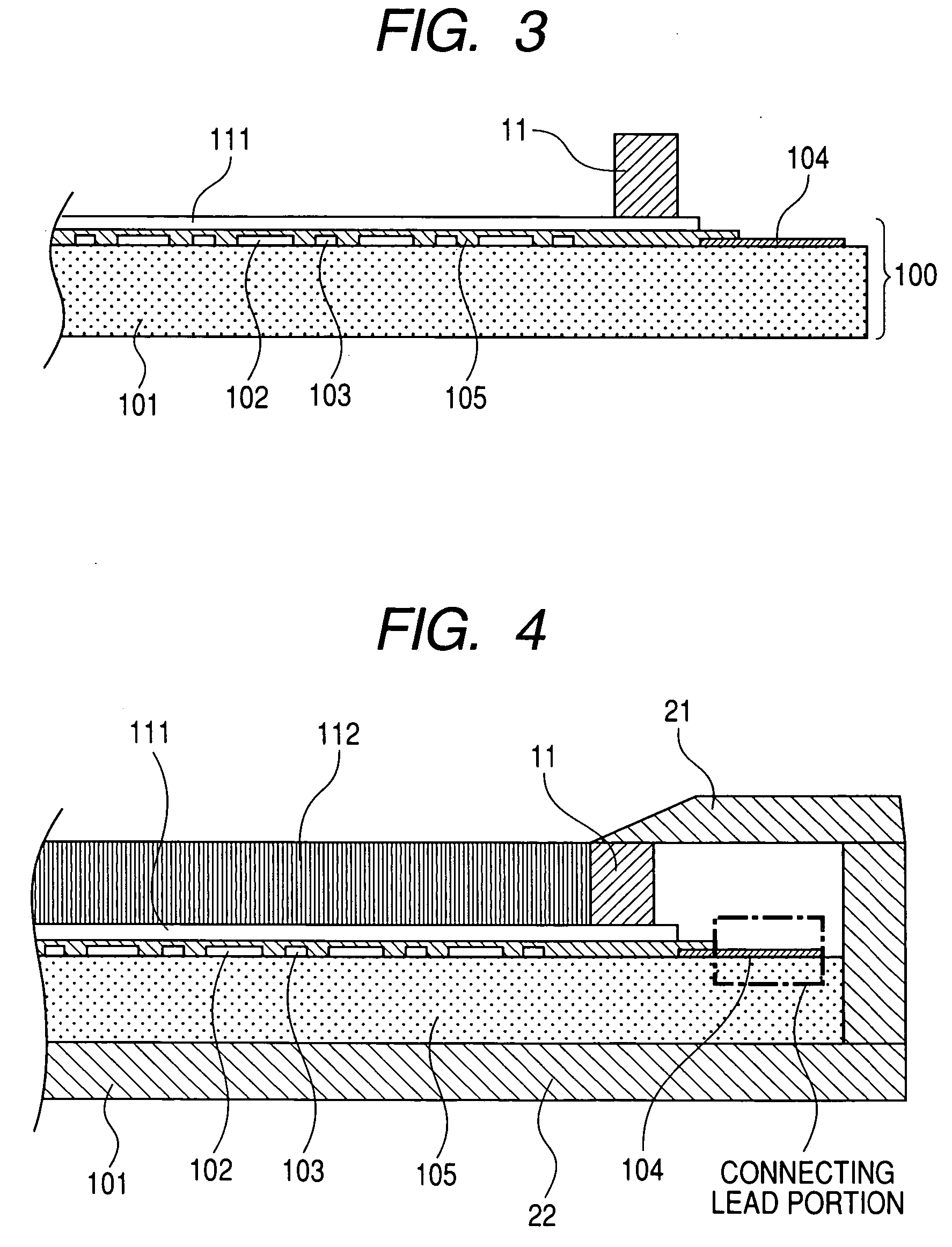Radiation detecting apparatus, producing method therefor and radiation image pickup system
- Summary
- Abstract
- Description
- Claims
- Application Information
AI Technical Summary
Benefits of technology
Problems solved by technology
Method used
Image
Examples
example 1
[0047] In the following, an example 1 of the radiation detection apparatus of the invention will be explained in detail.
[0048] As shown in FIG. 2, on a semiconductor film of amorphous silicon prepared on a substrate 101 such as glass, there were prepared a photoelectric converting portion (photoreceiving unit) constituted of photosensors (photoelectric converting elements) and TFTs. A sensor panel 100 was prepared by forming thereon a sensor protective layer (first protective layer) 105 of SiNx and a phosphor undercoat layer 111 of cured polyimide resin.
[0049] Then, as shown in FIG. 3, a frame member 11 of an epoxy resin was formed on the phosphor undercoat layer 111 in such a frame shape as to surround the two-dimensional photoelectric converting unit on the sensor panel, by coating with a dispensing apparatus with a width of 2 mm and a height of 0.5 mm, followed by curing. Then, as shown in FIG. 4, a phosphor layer 112 of an alkali halide phosphor of a columnar crystal structure...
example 2
[0052]FIG. 8 is a schematic partial cross-sectional view showing a radiation detection apparatus of example 2. Components same as or equivalent to those of the prior example shown in FIG. 11 and those of the example 1 in FIGS. 1, 2, 3 and 4 are indicated by same numbers and will not be explained repeatedly or only be briefly explained.
[0053] Also in the radiation detection apparatus shown in FIG. 8, as in the example 1, a frame member 11 was formed by a dispensing apparatus or a screen printing apparatus in such a frame shape as to surround the two-dimensional photoelectric converting unit. Thereafter a phosphor layer 112 was formed by placing a holder for vacuum evaporation, and a phosphor protective layer 13 was positioned and fixed so as to be in contact with the surface of the phosphor layer 112 and the frame member 11.
[0054] In the present example, as will be apparent from FIG. 8, the frame member 11 on the sensor panel 100 was so provided as to be in contact with both a phos...
example 3
[0055] In the examples 1 and 2, the frame 11 formed on the sensor panel was formed with a height same as that of the phosphor layer 112. However the present invention is not limited to such case, and the phosphor layer 112 may be formed with a height larger or smaller than that of the frame member 11.
[0056]FIG. 9 is a schematic partial cross-sectional view of a radiation detection apparatus of the example 3, showing an example in which the phosphor layer 112 was formed higher than the frame member 11.
[0057] In such case, when a phosphor protective layer 13 is formed by heat pressing with a heat roller as shown in FIG. 7A, the surface of the frame member 11 is positioned lower than the phosphor layer 112. Therefore, the pressure of the heat roller becomes weaker and a lower adhesion tends to result between the surface of the frame member 11 and the phosphor protective layer 13. Therefore, the adhesion was improved, as shown in FIG. 10, by thereafter executing a heat pressing (hot p...
PUM
 Login to View More
Login to View More Abstract
Description
Claims
Application Information
 Login to View More
Login to View More - R&D
- Intellectual Property
- Life Sciences
- Materials
- Tech Scout
- Unparalleled Data Quality
- Higher Quality Content
- 60% Fewer Hallucinations
Browse by: Latest US Patents, China's latest patents, Technical Efficacy Thesaurus, Application Domain, Technology Topic, Popular Technical Reports.
© 2025 PatSnap. All rights reserved.Legal|Privacy policy|Modern Slavery Act Transparency Statement|Sitemap|About US| Contact US: help@patsnap.com



